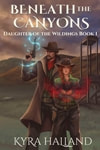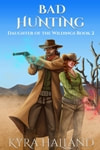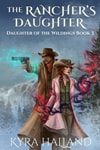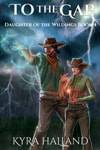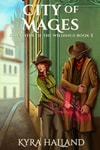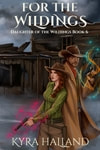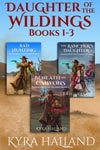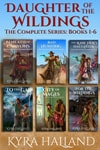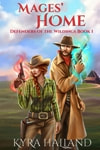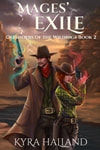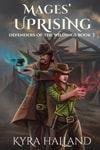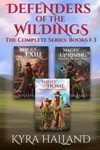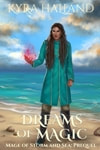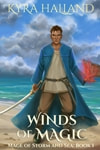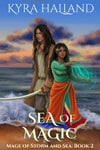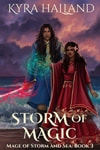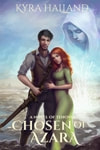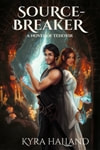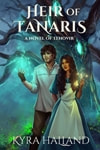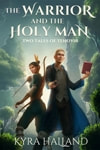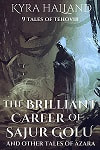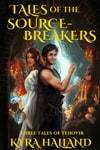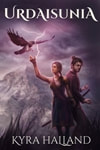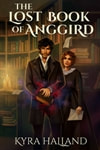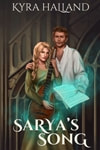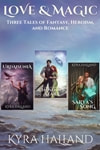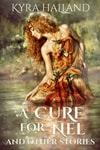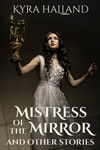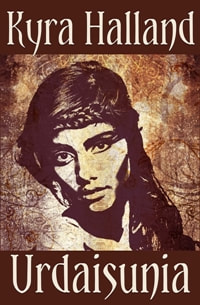 As I mentioned last time, my 5-year publishing anniversary came and went last month. Feb. 11, to be exact, the day I published Urdaisunia. Here it is with its original cover, which I made with a piece of stock art in Photoshop Elements 5. Not too bad, considering the knowledge and resources I had at the time. Since then:
In the last five years, I've met some amazingly kind, helpful, and talented people. (You can see links to some of their websites in the sidebar.) Technically, I suppose authors are in competition with each other, but the indie author community is the most cooperative and supportive competition I've ever seen, with so many people willing to share resources and tips, band together in marketing, and help each other along. Sales-wise, I'm not where I hoped I would be at this point. But I've been correcting some things that might have been holding me back, and making new plans for moving forward. Some things I've learned in the last 5 years:
What lies ahead?
0 Comments
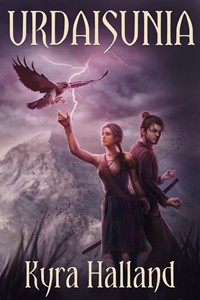 One of the reasons I started writing was to write the kinds of books I wanted to read and had a hard time finding. So it makes sense that I would want to go back and re-read my older books, and I've been wanting to do so for a while. It isn't quite that simple, though. A lot of authors, including me, have a fear of reading their own books. We tend to read our own work in highly critical mode, and we're terrified of finding mistakes, or that our older writing style will make us cringe, or that we'll end up wanting to just rewrite the whole darn thing. Finally, though, I decided I wanted to read my books and revisit those stories and characters I love enough to brave the dangers. So I decided to start at the beginning and read Urdaisunia. And it was actually a lot of fun. It's been so long since I looked at Urdaisunia that I had forgotten a lot of what happens and a lot of the neat details in it that I love. Once I got over my initial terror of finding mistakes and sucky writing in every paragraph, I even got lost in the story, reading it like a reader would. That's a rare and fun thing when it happens for an author, to be able to read their book from a reader mindset. Would I do some things differently now, 2 1/2 years and many books later? Yes. As with most authors, my writing style has evolved and maybe improved with practice. And I did find two minor proofreading errors that I have corrected in the uploaded books. But I didn't find myself cringing or wanting to rewrite the whole thing; I thought it stands very well as it is. And I was reminded of some story threads to bring into planning the sequel (which is in the development stage, though it isn't at the top of my list of projects to work on). I hope it doesn't sound like bragging to say I enjoyed revisiting Urdaisunia and I'm proud of it. My books might never burn up the bestseller charts, but I can say that every book I write is a book I want to read, and I put my very best efforts and all my heart into each book. If I touch even one or two readers for whom that book is exactly what they wanted to read, and they feel the emotions and enjoyment that I put into writing the book, then I've done my job, and knowing I've touched readers this way is the best validation I could ask for. 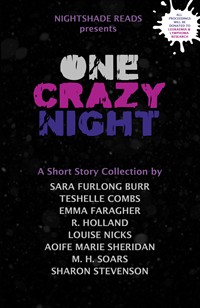 Today I'm pleased to feature a special book for a good cause: Nightshade Reads presents their debut fantasy anthology, featuring eight of the genre’s freshest up-and-coming independent authors. Get ready for One Crazy Night, packed full of magical encounters, dark secrets and shocking revelations. Get a glimpse into a powerful queen’s dark and brutal backstory in Aoife Marie Sheridan’s Bellona. In Louise Nick’s Love Magic, a homemade love spell goes disastrously wrong for two amateur teen witches. A young woman is captured by beautiful, dangerous creatures in M.H. Soars Elements: A teenage boy falls in love, but things quickly become complicated in R. Holland’s Lady in Black. Sara Furlong Burr brings a broken man’s troubles to light as he is offered a solution by a mysterious stranger in The Recruit: Emma Faragher spins a dark origin tale of sisterhood and magic in Necromancer Lineage. The kindness of a stranger takes a homeless young man by surprise in The Keymaker by Teshelle Combs. Sharon Stevenson’s Reanimator brings death and magic together to change the fate of one young man’s life: All proceeds from sales of this anthology will go to The Leukaemia & Lymphoma Research Organisation. Purchase Links: Amazon US: http://www.amazon.com/dp/B00THX82YM Amazon UK: http://www.amazon.co.uk/dp/B00THX82YM Barnes & Noble: http://www.barnesandnoble.com/w/books/1121346571?ean=2940046614855 Nook UK: http://www.nook.com/gb/ebooks/one-crazy-night-by-m-h-soars/2940046614855 Smashwords: http://www.smashwords.com/books/view/518865 Other Important Links: You can add this book to your TBR pile on Goodreads here: https://www.goodreads.com/book/show/24822007-one-crazy-night You can like our facebook page here: https://www.facebook.com/NightshadeReads You can find out more about the charity this anthology supports here: https://leukaemialymphomaresearch.org.uk/ Author Links: Sara Furlong Burr: http://sarafurlongburr.blogspot.co.uk/ Teshelle Combs: http://teshellecombs.com/ Emma Faragher: https://www.facebook.com/pages/Emma-Faragher-author/140453732798952 R. Holland: http://www.rhollandbooks.com/ Louise Nicks: http://www.sorensaga.com/ Aoife Marie Sheridan: http://www.aoifemariesheridan.com/ M.H. Soars: http://www.mhsoars.com/ Sharon Stevenson: http://sharonstevensonauthor.com/ About the Leukaemia & Lymphoma Research Charity: This charity was chosen as it is one that is close to all of the Nightshade Reads author’s hearts. Researching blood cancers and the prevention of these illnesses, Leukaemia & Lymphoma Research believes that everyone should be able to live their lives to the full. They have been working for over 50 years to beat blood cancers and donations really do make all the difference to their research. You can find out more about this charity and the wonderful work that they do here: https://leukaemialymphomaresearch.org.uk/ 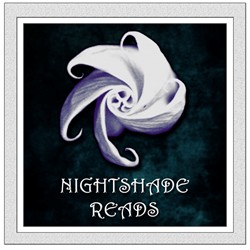 About Nightshade Reads: Nightshade Reads is an independent author collective and One Crazy Night is their debut short story anthology. Eight authors who write YA & NA novels in the fantasy, paranormal, and dystopian genres make up this collective. These authors have worked hard to bring together a collection of exclusive stories that are all set on One Crazy Night, and they decided that all proceeds from sales of this book will go to the Leukaemia & Lymphoma Research Charity. You can keep up with the works of this collective here: https://www.facebook.com/NightshadeReads Kyra sez: This is a cause that is close to my heart, and I'm delighted to have the opportunity to help get the word out about this anthology. Nineteen years ago in April, my good writing friend Shiori lost her battle with leukemia. We met in a science fiction/fantasy workshop at our local community college, and eventually split off into a smaller workshop/critique group with one other person. We would meet at Coffee Etc. one night a week (where, since I don't drink coffee, I would indulge in the yummy German chocolate cake and raspberry lemonade) and talk about writing and other things, laugh, and support each other in our writing and our lives. Shiori was a talented and dedicated writer of Star Trek fanfic, even though everyone in the workshop laughed at her and pointed out that she couldn't publish it. Sadly, she died just before or right at the dawn of the great age of Internet fanfiction. She was 42 years old and left an 8-year-old son.
I was pregnant with my younger son during the last months of her illness. It was a difficult pregnancy and I didn't touch base with her for several months until shortly after my son was born. I was shocked when she died a few weeks later, and at that point I learned from our other writing friend that Shiori had refrained from telling me just how sick she was, because she knew I was already stressed out with my pregnancy. It was her gift to me, the only gift she was able to give me in the end stage of her illness - that and a card, which she bought during her last expedition out of the house and sent to me. I still treasure it. One of the books I workshopped with Shiori and our other friend is the book that eventually became Sarya's Song. A big turning point with that book came when they laughed at the love scene in the original version. Not to my face, of course, but while they were reading at home, and they were very apologetic when they told me about it, but it had to be said. It stung at first, then I realized they were right to laugh. Not only was the scene all wrong, but so were Sarya and Adan's entire characters. It's because of Shiori that Sarya's Song is the book it is today, and it's dedicated to her. I wish she could have read the final version, and it's my hope that proceeds from the sale of One Crazy Night will help more cancer patients enjoy more books, more cake, more laughter, and more years with their friends and families. Watch for my upcoming review of One Crazy Night; so far it's lots of fun! 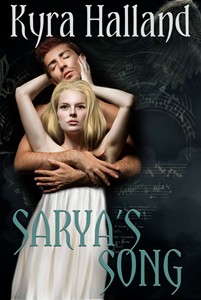 Happy endings - boring and unrealistic? Or uplifting and fulfilling? Every once in a while I come across this discussion on one blog or forum or social media site or another. Sometimes I weigh in, sometimes I don't, but it's something I feel very strongly about - I love happy endings. I hate it when I've invested a lot of time and emotion in characters (and, where there's a romance, in their relationship) only to have things turn out badly for them. If I wanted to read something depressing, I'd go read the newspaper. I feel this way about the books I read, and I especially feel this way about the books I write. Three of the main complaints I've heard about happy endings are that happy endings aren't realistic, a happy ending means the whole book is nothing more than fluff, and the story is boring if there isn't the possibility that one (or more) of the main characters could die. 1. Happy endings aren't realistic - this just isn't true. Yes, there are lots of bad outcomes in real life, but there are also lots of good outcomes. It's just that the bad ones get most of the attention. Also, I think it's destructive to believe that happy endings aren't realistic. If there are no such things as happy endings, then why should anyone even bother trying to make the world a better place or improve their own lives? Now, I'll admit that a perfect happy ending, where everything is bunnies and rainbows and unicorns and no one ever faces any more problems or challenges for the rest of their lives, isn't realistic. Plus it would be boring. But, to me, a happy ending doesn't mean there aren't any problems still to be faced. True happiness comes in the face of challenges and trials. If you don't know what sorrow and hardship are like, then how can you truly appreciate happiness? 2. A happy ending means the book is lightweight fluff - this just isn't true, either. Like I said, happiness in more meaningful when you've had to come through trials and challenges. Therefore, my theory goes, the greater the problems the characters have to deal with, the happier the happy ending. I make my characters earn their happy endings. When you've followed the characters through a whole novel and all kinds of troubles and struggles and dangers, it feels even better to see them finally get their reward. 3. The story is boring without the possibility of the main character(s) dying - Life and death aren't the only possibilities in fiction, or in life. Actually, from a narrative standpoint, death is boring (unless the possibility exists for the character to continue developing and making a difference after death). To me, the questions of "HOW are they going to survive?" and "How are they going to live on in the aftermath of everything that's happened?" are far more interesting and filled with possibilities than "ARE they going to survive?" The one criticism I've read of happy endings that I think is valid is that sometimes they seem to come out of nowhere and just be stuck on the end of the story without regard for plot, characters, world, or the expectations that have been set up in the story. But this is more a problem with the writer's craft than with happy endings themselves. You can also have tragic endings that come out of nowhere and are just stuck on the end of the story without regard for plot, characters, world, or expectations. Part of the craft of structuring a story is laying down the seeds of the ending from the very beginning. So, for example, you can have something that looks like a deus ex machina (god on a machine, from old operas based on Greek/Roman mythology where at the end, when it looked like everything was lost, a god would suddenly swoop down from "heaven" on a piece of stage machinery and fix everything) and have it come out of nowhere and have nothing to do with the story, or you can carefully plant the possibility of divine intervention and what the characters have to do to earn or invoke it. Whether the god saves everyone or destroys everyone, it doesn't matter - the important thing is to build the foundation for it from the beginning of the story. A lot of the "tacked-on" effect might also be due to the author's outlook on life. If an author doesn't believe happy endings are really possible but she feels obligated for marketing reasons to slap on a happy ending, it isn't going to be sincere. A writer should be true to their own vision, but maybe, I'd gently suggest, a writer whose worldview precludes any possibility of happy endings would benefit not only her stories but herself by expanding her worldview to include more positive possibilities. Also, I suppose it's possible to write characters who don't naturally gravitate to a happy ending, so that they have to be forced into it, but I guess I don't write those kinds of characters. One of the common threads my characters have is that they want to take responsibility for their actions and be in charge of their own fate and be free to make their own decisions (even when they're in situations where they feel like they aren't in charge and don't have that freedom; they still long for it), and they want to use this freedom and responsibility to make something good of their lives. Again, this might have a lot to do with the author's own outlook on life. I believe in human freedom and agency and that no matter how bad things are, we always have the power to try, in some small way, to make something good of it, even if it's only in our refusal to give up hope or to let our trials make us into someone less than we are. I've said before, since my books are partly romance, where Happily Ever After is a given of the genre, it's no spoiler to say that my books have happy endings. The questions isn't "Do they make it through?" but "How do they make it through?" and "How do they go on with the rest of their lives?" The characters have to endure a lot to get to that happy ending, and sometimes it isn't clear how things are going to work out, and there are always consequences from the events of the story - destroyed lands, consequences of their actions, lasting effects from the traumatic events of the story - to be dealt with in the future. The main thing is, they do make it, good overcomes evil and love triumphs over all, and my characters come to the end of the book facing the future and its challenges side by side and hand in hand. This is the payoff that I as a reader hope for when I read a book, and that I as an author like to give my readers. 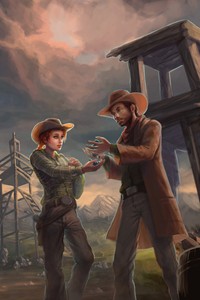 I've been thinking about this post since reading Dean Wesley Smith's post on setting writing goals for 2014. This year got off to a rocky start for me; I had an abnormal EKG a week before Christmas, which was kind of alarming, and I've been dealing with tests and a lot of anxiety since then. Everything is still inconclusive so far, but right now it looks like we're not dealing with anything immediately dangerous; most likely it's nothing serious, or we've caught something more long-term serious in the early stages. Getting this glimpse of my own mortality had the contradictory effects of making it hard to make future plans and goals (who can make plans for the future when they're afraid they're going to drop dead at any moment?) (seriously, I'm a terrible hypochondriac) and making me really zero in on what I want to accomplish in my life. The main thing I realized, besides wondering who would make the Christmas fudge and homemade dinner rolls at our house if I wasn't around (getting alarming health news right before Christmas really sucks) is that I would be extremely bummed out were I to shuffle off the mortal coil before getting Daughter of the Wildings out. I've instructed my husband that should something happen to me, DoW is to be made available however seems best at the time - put up for sale, or just posted for free, or whatever. The problem is, as it is right now, still in rough draft, it kind of sucks. It's not terrible, but there are parts that make me cringe or that are just plain wrong, and I really don't want it to go out into the world this way. So, with that as my focus, and now that I'm not quite so convinced that I'm going to drop dead at any moment *knock on wood*, here are my plans and goals for the coming year. Although Sarya's Song is the next book scheduled to come out, I'm going to be spending most of my work hours on the initial revision of Daughter of the Wildlings. DoW is a huge project, nearly 300,000 words, and if I'm going to get it released on any kind of schedule, it needs to take priority. This shuffling of priorities will mean that the release of Sarya's Song may be delayed a bit. I'm hoping for a February release, but it may take until March. My target for releasing the first DoW book, Beneath the Canyons, is June, though that may be a bit optimistic. The plan is to get all six books to where once I start releasing the series, a new book can come out about every other month. Once Sarya's Song is out and DoW is well under way towards being released, there are a couple of different areas I'm thinking I'll turn my attention to. One is a couple of partially-written novels set in Estelend, the world of Chosen of Azara. I also had a reviewer say they wished Chosen was a trilogy instead of one book, because they wanted more backstory on some of the characters and events. Rewriting Chosen as a trilogy isn't going to happen - I just don't feel it that way - but I'd like to do a set of stories giving some of the backstory the reviewer mentioned they'd like to know more about. Maybe I'll make this a Camp NaNo project in April or July. And the very first novel I ever wrote, Prince of the Trozdozh, and its sequel are sitting on my hard drive, calling out to me. I think they're probably salvageable, so I want to run them through my revision process and see it they really are something I can release to the public. As far as production goals, right now I can't really set a word count goal. By the end of the year I aim to have released 5 novels (Sarya's Song and the first four Daughter of the Wildings novels) and at least one short story collection (the Chosen of Azara companion stories). I had five releases in 2013, so six releases in 2014 sounds like a good progression. And, onward. Happy New Year, everyone! May it be happy and productive and with a minimum of unpleasant surprises. 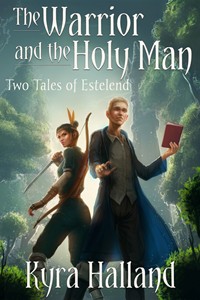 You may or may not have noticed, a few days ago I posted "The Path of Haveshi Yellowcrow" and "The Path of Latan the Clerk," two connected short (well, kind of long, actually) stories loosely related to Chosen of Azara. They'll be free to read here on the site until Dec. 12, and then they'll go up for sale on Amazon. [Update: these stories are now available on Amazon in a volume titled The Warrior and the Holy Man.] In Chosen of Azara, as Lucie is researching the history of the Madrinan Empire to try to decide if Sevry's story is true, she comes across a passing reference to a discredited Kriethi historian and his female Krunabashai bodyguard. These two stories tell the tale of the historian and the bodyguard. I'd been calling Latan "the Scholar," but he's really just a lowly clerk who dabbles in historical research in his spare time, and since he's such a modest fellow he insisted I change it to "clerk." But he still made it into at least one of the history books of his world. I don't know if he'd be more pleased or embarrassed about that. In the titles, I also replaced "tale" with "path." "Path" is a little more different and interesting, plus a major theme in both stories is the paths life takes us on, both expected and unexpected. Both Haveshi and Latan think they know what they want out of life and exactly how their lives are going to go - they're happy, or at least content, with the paths their lives are following. Then unexpected events force them from those paths and require them to find new ways to live. These two stories are a great example of how old ideas evolve into new ones. Haveshi's story originally started out as a novel set in Estelend [Edit: I have since changed the name of this world to Tehovir] (the same world as Chosen of Azara, with magical Sources playing an important role), with the events the same as in the story and then dragging on and on as Haveshi and her companion Daivashan went from one place to another without actually accomplishing much of anything. Back in those days (early 90s), you either wrote novels or you wrote for the short story market, and I was a novel writer. If I ever decided to dabble my toes again in publishing, I would need novel-length offerings to present to agents and editors. And so I took a story that didn't really have enough story in it to be a novel and tried to stretch it out into one. Then, in the last year or so, when I was looking through my old story files and thinking about the new, expanded possibilities offered by self-publishing - no arbitrary word count or length guidelines set by publishers based on the economics of publishing paper books or magazines; stories could be as long or short as they needed to be - I realized that Haveshi's story would be perfect as a longish short story. She finds her answer without all that pointless wandering around, and sets off for her new life, the end. The other seed of this pair of stories came from this fragment. (And I'm going to be really really brave and post it here exactly as I wrote it umpteen years ago.) "You're the guard Bodric sent?" Sevry stared at the short, sturdy woman in front of him. He hoped there was a mistake. Ok, first of all (besides the head-hopping), you may notice a few familiar names. Sevry, the name of the wizard in this fragment, became the name of the last King of Savaru and the hero of Chosen of Azara. That Sevry is many things, but most definitely not a wizard; I decided that name worked well for him, so I re-purposed it. Also, Perar became Perarre, the heroine of The Lost Book of Anggird, who is also most definitely not a bodyguard. So with the characters' names being used for other stories, I had pretty much decided this fragment was dead. But I still liked the idea: a lowly member of some sort of order about to set out on a journey finding out, to his dismay, that a woman has been assigned to be his guard.
Eventually, Sevry the wizard morphed into Latan the Scholar (and then the Clerk), And then I made the connection - the female bodyguard is Haveshi, from that other abandoned project. This set Latan's story firmly in the world of Chosen of Azara. When I tried to figure out the point of the journey he was going on, I realized that he had made a momentous discovery related to the conspiracy that destroyed Savaru, and he's going to present this discovery to the High Priest of the Madrinan Empire. And, ta daa, I had my stories; it was just a matter of writing them. Haveshi's story comes first in the duology. It tells how she got derailed from the path her life was on and came to be a mercenary in a conquered land that is now part of the Madrinan Empire. Then her story continues with Latan's story, when she's assigned to guard him on a journey that proves as disruptive to his life's path as the events in her story were to hers. I suggest reading Haveshi first, then Latan, but it could work the other way around, too. "The Path of Latan the Scholar" contains a spoiler for an event early on in Chosen of Azara, but the way it's presented, and the fact that the event happens so early in Chosen, it won't spoil the whole novel - I like to think of it as a teaser. Chosen of Azara also contains a spoiler for "The Path of Latan the Scholar," but that spoiler doesn't take in nearly the whole of the story. So either way, there's information given. If you're wondering what to read first, I'd say it could go either way - consider "The Path of Latan the Scholar" a teaser for Chosen of Azara, or a supplement to it. I've also posted an updated map of Estelend, showing Source Tiati, where Latan lives, in Krieth in the south part of the Madrinan Empire. If you haven't read Chosen of Azara yet, you can get an introduction to that world in "The Path of Haveshi Yellowcrow" and "The Path of Latan the Clerk," and if you've read it, you can get the scoop on that discredited historian and his female bodyguard. I hope you'll take a look, and enjoy the stories! ***Shameless self-promotion (but hey, it's my blog, it's all about self-promotion!): if you haven't read Chosen of Azara yet and want to, it's available at: Amazon | Barnes & Noble | Apple | Sony | Diesel Smashwords | CreateSpace | All Romance eBooks  In addition to Thanksgiving and my birthday, for me November means National Novel Writing Month. And since no one can procrastinate like a writer on a deadline, November also often means finding new and creative ways to put off having to commit words to paper (or the screen). This year, the way I came up with to procrastinate was counting my lifetime output of words. Many writers have a strange obsession with word count. In the days of using typewriters, you gauged how much you accomplished by how many pages you had written. Now that most writers use computers, pages are irrelevant and productivity is measured by the number of words you wrote. National Novel Writing Month requires 50,000 words to complete the challenge. Agents and publishers specify the number of words manuscripts need to have to be considered for publication. Writers set goals of 1000 or 2000 or 5000 words per day. And there's a bit of common writerly wisdom that it takes a million words to get good at writing (or, alternatively, "the first million words are crap"). Like most common wisdom, there's some truth to this, but it isn't entirely true. It is true that writing is something you get better at the more you do it. But the measure of a million words seems kind of arbitrary. Someone who is an avid reader and/or got good grades in English (or whatever language they're writing in) is probably going to start out ahead, quality-wise, of someone who's never read a book or who doesn't know how to put understandable sentences together. Granted, some people have a natural instinct for storytelling that transcends proper writing mechanics, so they're ahead as far as that goes, but writing is communication and it doesn't matter how good your story is if you can't communicate it in a way that your readers will understand. On the other hand, other people might have a gift for writing beautiful prose but no sense of how to put together an exciting, entertaining story. So they have a lot of work to do, too. (I, for one, would rather read an entertaining, engaging story that is written in inexpert prose than something that's beautifully written but boring.) So, not every writer starts out at the same level of crappiness. Then there's the factor of how hard they work at improving their craft. If you write a lot, you're almost bound to get better at it without even trying. But if you read good books to learn how prose and storytelling work, and seek out good writing advice and really work on applying it, you're going to get better even faster. But even with all these qualifiers, some writers (or me, at least) are curious about how far along they are on that fabled million words or how long ago they passed it by. So, in the spirit of NaNo-ly procrastination, I totaled up my lifetime word count (as an adult; I didn't count the stories and plays I wrote in elementary school :-D). First, for non-writers, numbers of words might not really mean anything. How much is 50,000 words? How much is 1000 words, a million words? Here are some examples to give some idea of scale, of word counts of famous novels (from this site): Harry Potter and the Philospher's/Sorcerer's Stone: 77,325 Harry Potter and the Deathly Hallows: 198,227 The Hobbit: 95,022 Charlie and the Chocolate Factory: 30,644 Nineteen Eighty-Four: 88,942 To Kill a Mockingbird: 99,121 Fahrenheit 451: 46,118 Lord of the Rings Trilogy: 455,125 A Game of Thrones: 284,000 (from here) Brave New World: 63,766 Methodology: first I looked up how to add columns in a spreadsheet. (More procrastination; plus I'm pretty clueless about spreadsheets.) I only counted the latest version of each work, instead of earlier drafts, so there are a lot of cut scenes that didn't get counted. In cases where I re-wrote something from scratch, I did count both the earlier, abandoned version and the new version. I counted novels, novellas, short stories, and story fragments, but not my handful of poems because writing poetry is a completely different discipline from writing prose fiction. Also, it isn't that many words. And I am most definitely not a poet. :-P So, counting that way, my lifetime word count between 1990 and 2013 is 1,614,156 (counting the novel I wrote in November; I added it in when it was done). Well past the million-word mark, you'll notice. Broken down further: 1990-2000: 444,095 words 2000-2008 (when I began writing fanfiction through the last year before I seriously did NaNoWriMo for the first time): 405,878 2009-2013 (when I got a big creative kick from completing NaNo for the first time through the present): 632,176. If you're adding along with me, you'll notice I passed 1,000,000 words sometime in 2010. As for when my writing graduated from "crap" to "not crap," I like to think it happened (if I say so myself, if it doesn't seem like I'm being arrogant to assume that my writing has made that shift) sometime in the early 2000s, when I was turning out large quantities of fanfiction on a regular basis. Lots of writing in a short period of time with close attention to quality will elevate the level of your writing, no matter where it starts out. This year, 2013, has been my best writing year ever, with 271,303 words. 195,927 of those words are books 2-6 of the Daughter of the Wildings series. I expect to add quite a few words when I revise (I generally tend to "write short" and then fill out details in revision), so my lifetime word count will go up by the time that series is ready for publication. Fanfiction got me back into writing at a time when I had lost heart for writing for a few years, and from 2000-2003 I wrote a great deal of fanfic. 405,878 words of it. I also wrote the original version of Chosen of Azara during this time, about 70,000 words, but I counted that in my 2009-2013 output because I re-wrote it pretty extensively this year and last year and extended it to 81,000 words. My lifetime fanfiction total is 632,176 words and original fiction total is 981,980. All those words of fanfiction were a significant factor in reaching the first million words, and I think I improved a lot as a writer while writing them. My experience with fanfiction is another post for another time, but I will say that, even though I keep my fanfic writer identity separate from my identity here, writing all that fic helped make me the writer I am today. (For whatever that's worth!) Among the pre-2000 output are my first two complete novels; the second one is actually a sequel to the first and I had totally forgotten that I had finished it. So that was an interesting surprise to come across! I plan on evaluating them to see if they're worth revising and publishing; I think they probably are. There are also some fragments of novels set in the same world as Chosen of Azara, that I'm looking forward to developing and completing. Once Daughter of the Wildings is into the final revision stages and being released, sometime next year, I'll start on those. On to two million! (Image credit: Zsuzsanna Kilian, stock.xchng) And now, the blog post you've all been waiting for, Billionaires, Bad Boys, and Bondage, Part 4: Bondage! (past installments: Billionaires, Bad Boys: Inner Torment, Bad Boys: Jackassery). (Caution: soapboxing may occur. If I cause offense, I make no apologies; I stand by my words.) I'm going to start out with two basic ideas. The first is that there's nothing wrong with a certain amount of roleplay and fun and games between consenting partners, the key word here being consenting. I'm not conversant with the BDSM lifestyle or practices, but from online discussions I've read on the subject of Billionaire Bondage novels (both in forums and in book reviews), I'm given to understand that among those in that community, consent is key. In other words, you don't do what Bux Cashton does: he informs Sweet Young Thing that he is the dominant and she is going to be the submissive, and if she wants to be with him that's how it's going to be; they're going to play by his rules. By this time, she's far too taken with him (goodness knows why; see the Jackassery installment) for it to be easy for her to say, "Get lost," and even if she does, he isn't one to take "Get lost" for an answer. So, basically, she is being coerced, emotionally bullied, and manipulated into entering into this sexual practice. Idea number two: While there's nothing wrong with a certain amount of roleplay and fun and games between consenting partners, the desire to cause feelings of pain, humiliation, and helplessness in one's partner has no place whatsoever in a loving, healthy relationship. That should be self-explanatory; I can't imagine that it isn't. So I'm not going to bother trying to explain further. I'm just going to say that if you are in a relationship with someone who takes pleasure in hurting you or making you feel bad, you need to get out. In Billionaire Bondage books, Bux Cashton does enjoy those things. He gets off on it; it makes him feel powerful, and it's an outlet for his feelings of Inner Torment. I don't understand why Sweet Young Thing sticks around long enough for Bux to eventually reform (to the extent that he does), except Hot Tormented Billionaire. 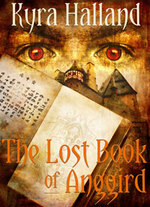 In my books, sex between the main characters is an act of love, or at least mutual liking and attraction (later developing into love), between equal partners (equal regardless of whatever differences in age, social status, or previous experience might exist between them) who are each as deeply concerned with the other person's comfort, enjoyment, and well-being as with their own. Consent is asked for and received, at least the first time (with one exception, but in this instance they're too busy tearing each other's clothes off to stop and talk about it, so I guess the consent is implied), and after that first time there continues to be a sensitivity to the other person's mood and willingness. Being tied up does become a running joke during one story (and no I'm not going to say which one; you'll have to read and find out, bwahaha), because of something that happens accidentally - something that the woman does, incidentally, so the roles here are switched around. 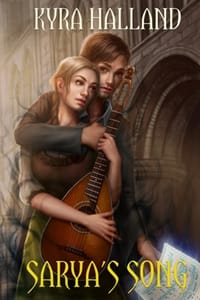 It's the villains who engage in sexual sadism (btw, I did mention at some point that my books are not for young readers but for adults and older teens, right?). Not in every book, but there are a few who use that as part of their power play. And occasionally one of the main characters is involved in a wrong relationship (before taking up with the right person, the other main character) and the ideals I talked about above don't necessarily apply to those relationships. But when the main characters do get together, that's how it is, because that's what I believe a loving, healthy intimate relationship should be. So, the Bondage Scale: Eruz (Urdaisunia): He does have concubines (common in his culture for a man of his ranking), but he usually feels like it's really more trouble than it's worth, and would never force any of them to do anything they don't want to. And where he lives, pain and suffering are so common that he would rather use sex to escape from it, not to indulge in more of it. Bondage Rating: 0 Sevry (Chosen of Azara): No time for sex, never mind kinky sex. Plus, he's seen too much suffering in his life to find anything fun or sexy about it. Bondage Rating: 0 Roric (The Lost Book of Anggird): Nope, no way. Uh-uh. Forget it. He's experienced too much personal suffering to want to inflict it on another person. Bondage Rating: 0 Adan (Sarya's Song): He already blew it once with Sarya; if he ever gets another chance, he isn't taking any risk that he might blow it again. As for other relationships, he's just too easy-going and too much of an all-around nice guy to want to hurt anyone. Bondage Rating: 0 Silas (Daughter of the Wildings): He's seen people hurt other people just because they can, and he has no desire to be that kind of person. Bondage Rating: 0 Edit: I've had some complaints from the gentlemen that this rating makes them all sound like they're boring in bed. So I'll note that the Bondage Rating is based strictly on disregard for consent and the degree of enjoyment obtained from causing feelings of pain, humiliation, and helplessness (with fun and games, adventurousness, etc. not being considered.) And to soothe some ruffled pride here, I'll give them all a big 10 on the special Red-Hot Lovers scale. Or, ok, 11. That better, guys? (Aw, look, I made Sevry blush!) And no, Silas, the scale does not go to 12. *sheesh* 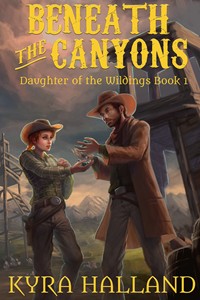 So, in conclusion, on a scale of 0 to 40 points on the Billionaires, Bad Boys, and Bondage rating, we have: Eruz (Urdaisunia): 12 points Sevry (Chosen of Azara): 10 points Roric (The Lost Book of Anggird): 17 points (scored high on Inner Torment) Adan (Sarya's Song): 17 points (scored high on Billionaire) Silas (Daughter of the Wildings): 9 I am therefore forced to conclude that I am not really in step with the BBB&B trend. That's okay, though. It's been a fun way to look at my heroes from some different angles, but, in all seriousness, it isn't something I would want to write. It's just too far removed from my ideal of what men, women, and the relationships between them can be, an ideal that I feel it's important to convey through my writing. I'm writing what I love and what I believe in, and I'm happy with it. In this series, I've been looking at how my novels stack up against the hottest trend in fiction right now: billionaire bad boys who are into bondage. So far I've covered the Billionaire factor and one of the two components of the Bad Boy, Inner Torment. In this post: the other half of the Bad Boy factor, Jackassery. The guys in these books, I don't know. It's a good thing they're rich and they're hot, because it's kind of hard to tell why any woman would want to have anything to do with them at all otherwise. They refuse to take No for an answer, they manipulate or coerce Sweet Young Thing into sexual practices that are outside of her normal preferences and comfort zone, they control where she goes and when and who she sees... If you've ever read any of those Top Ten Signs Your Partner Is An Abuser lists, this is probably starting to sound familiar. Sweet Young Thing usually does stand up for herself against Bux Cashton eventually (reviews are divided on whether or not readers appreciate that development), and that does sometimes seem to be a turning point in the plot, with the guy maybe coming to realize that there are other ways of interacting with women besides being a complete jerkface to them. Yeah, it's a common fantasy, the tormented jerk who comes to appreciate the woman who is so patient and understanding with him and is reformed into a nice, loving, romantic, wonderful guy. But there has to be something there in the first place to make Sweet Young Thing think it'll be worth all the jackassery she has to put up with in the meantime. Are hot, rich, and tormented enough? Apparently so. Anyway, here's the Jackassery ratings on my own heroes (with bonus notes about how the ladies deal with it): Prince Eruz (Urdaisunia): Considering everything he's dealing with in his personal and professional lives, Eruz is really a pretty nice guy. He commits two main acts of jackassery where Rashali is concerned, neither of which are intended to be controlling, bad, evilly underhanded, or otherwise offensive, although they certainly come across that way. One is more a matter of social ineptitude than anything else (Eruz isn't really a people person), the other is a matter of urgent political necessity. Rashali's reaction is to renew her resolve to make sure the Sazars are destroyed or driven out of Urdaisunia, though she later comes to realize that his actions weren't what they seemed to be and maybe there's another solution to the Sazar-Urdai conflict. Jackassery Index: 3 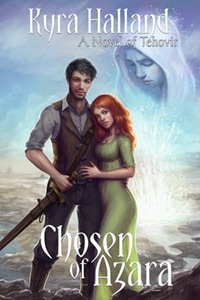 Sevry (Chosen of Azara): Again, considering everything he has to deal with, he's a pretty nice guy. His main problems are the pressure he's under to complete his task and, as with Eruz, a lack of social skills. For all his many and varied experiences, he's never had to deal with someone like Lucie before. When he realizes that she's the person he's been looking for all this time to help him complete his mission, he uses a number of tactics to try to persuade her, including guilt-tripping. His worst act of jackassery certainly isn't intended to be that way; it kind of just happens. He still gets himself slapped by Lucie, plus she's never afraid to tell him that what he wants from her is out of the question. Jackassery Index: 2 Roric (The Lost Book of Anggird): Roric scored highest on the Inner Torment scale. He's worked very hard to build a new life for himself, and everything in his life and his world is very carefully controlled. He dislikes having any kind of chaos or unpredictability in his life. When Perarre comes into that world, he is fairly overbearing in his attempts to make her obey all his little rules for how things should be done. They work for him; shouldn't they work for everyone? Perarre really really wants this job - or, more specifically, she wants the future opportunities that a good reference from the renowned Professor Roric Rossony will open up to her - so she goes along with it to some extent, though never without pushback, and he eventually comes to see that a little chaos in his life won't hurt anything. Which is good, considering what happens next. Jackassery Index: 4 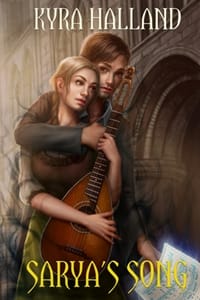 Adan (Sarya's Song): When Adan and Sarya first met, when they were teenagers, he did one thoughtless thing that caused her a lot of pain, but he didn't mean to. She still hasn't forgiven him. He also has a number of other faults - he feels no need at all to demonstrate false modesty, and he's extremely fond of, er, female companionship, but he never does anything with the intent to make Sarya feel bad or to control her. He actually isn't as big a jackass as Sarya thinks he is, but she cuts him no slack whatsoever. Jackassery Index: 5 Silas (Daughter of the Wildings): Silas commits one supreme act of jackassery, fairly early on in the series. Even while I was writing it I was thinking, Dude, no! You don't do that! To his credit, he realizes almost right away what he had done and why it was bad, and feels really bad about it. Lainie doesn't hesitate to let him know how bad he'd made her feel, but after some awkward conversations and a really spectacular act of redeeming himself, she forgives him. And he's just been a doll ever since :D Jackassery Index: 5 Conclusion: No one's perfect, and everyone does stupid things that hurt someone else, even when they don't mean to. But just because you might have had a good excuse for making a stupid mistake or otherwise doing something hurtful (past trauma, the demands of your job, temporary stupidity), there's never a reason why you can't apologize, do something to make up for it, and try to do better in the future. Coming up: Bondage. So, I'm taking a look at the heroes of my novels in comparison to the current hot trend of novels about hot, tormented billionaire hunks who like to play rough. The previous post evaluated them on the Billionaire scale, with Adan Muari from Sarya's Song topping out at 11 (on a scale of 1 to 10), and the others coming in considerably under that. Next up: the twin factors on the Bad Boy scale: Inner Torment and Jackassery. These two are linked because, in my extensive analysis of the trend (that is, reading lots of reviews, both positive and negative, of books on the "Falling in Love With a Billionaire" list on Goodreads), the male protagonist's past trauma and inner torment are what lead to his extreme narcissistic, hedonistic, selfish, and domineering behavior (aka his jackassery) and provide the excuse, nay, the justification, for any and all such acts. The overall idea is that the sweet young thing he fixates upon as his conquest (female in the examples I've seen, though I suppose this trend could also exist in the M/M romance sector) eventually comes to peace with and/or helps him overcome his inner torment and the accompanying bad behavior. (Because I'm analyzing Inner Torment and Jackassery separately, this is going to turn into a four-part series. Me and series, it always turns out there has to be one more installment.) My heroes on the Inner Torment scale (ratings are a function of badness of the stuff they've had to deal with combined with how well they deal with it) (Also, these are the characters as they are at the beginning of the books, more or less. Sometimes things get better, sometimes they get worse, bwahahahaha): Prince Eruz (Urdaisunia): His father hates him. His brothers hate him. His wives are mad at him, and his concubines aren't too terribly thrilled with him either. His country is falling apart, and he's wrestling with all these inconvenient ideas about equality between the Sazars and the Urdai and how just because you conquered someone doesn't mean it's ok to abuse and oppress them. But Eruz is mostly too busy trying to do his job and figure out how to do what's best for everyone to go all emo over this stuff. And at least his daughter loves him <3 :D Inner Torment rating: 3 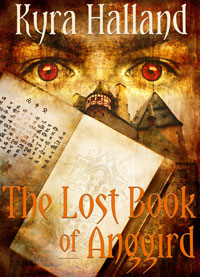 Sevry (Chosen of Azara): His country was at war from the time he was three until he was twenty-three. After that, his people destroyed and his country in ruins, he spends a very long time on a seemingly hopeless quest to try to restore what was lost. His circumstances keep him isolated, constantly on the run, unable to tell the truth about himself or form close relationships with anyone. He's dedicated to his duty and determined to carry it out, but he's lonely and he's getting pretty tired. He still manages to keep it together, barely. Inner Torment rating: 7 Roric (The Lost Book of Anggird): Hoo boy. Roric. Wow. I struggled with this novel for years, just not quite sure where Roric was coming from. And then one day he opened up and told me about his past, and I was both horrified by what he'd been through and terrified of writing about it. I thought there was no way I could write about a character with stuff like that in his past. I'm just not qualified (and I'm expecting some pushback for taking on a subject like this when the novel is released). On the other hand, I finally understood why he is the way he is - the accomodations he's come to in his effort to deal with his past and rebuild his life. Once I understood him, the story was much easier to write. Inner Torment rating: 10. Possibly 11. 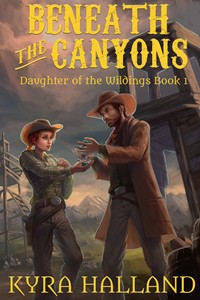 Adan (Sarya's Song): Incredibly rich, good-looking, popular, and talented, from a large and loving family. His father actually expects him to work, as in manual labor, on the family plantations during his visits home, so he knows what hard work is like and he understands, to an extent, what life is like for those less fortunate than him. He's pretty easy-going and content with life, except that as a teenager he did one incredibly thoughtless thing which totally ruined all his chances with the only girl he'll ever love. Not that he's given up hope, though. Inner Torment rating: 2 Silas (Daughter of the Wildings): As a kid, he made some selfish and thoughtless decisions, which had devastating consequences for someone he cared about. Rather than (or, in addition to) being traumatized by that, he learned from it. Eventually, spurred on by the ideals he came to embrace as a result of that incident, he threw away the wealth and privilege he was born to and chose the life he's living now, and is happy with it. Inner Torment rating: 2 Conclusion: My guys have all been through bad stuff (and continue to go through it). Some of it only mildly traumatizing, some of it devastating. They do have bad dreams and bad memories and painful, complicated emotions. But life is hard for everyone. Harder for some than for others, but no one is entitled to a bump-free ride through life, so they deal with it and go on as best as they can. Next time: The Jackassery Index (or, Why in the world do the ladies put up with this $&%@#???) |
AuthorI am Kyra Halland, author of tales of fantasy, heroism, and romance. Sign up for my email list
My Books
More Books
Click on the covers for more information
Categories
All
Archives
April 2024
Kyra Halland: Welcome to My Worlds is a participant in the Amazon Services LLC Associates Program, an affiliate advertising program designed to provide a means for sites to earn advertising fees by advertising and linking to amazon.com.
Other links on this site may also lead to products for which the owner may receive compensation. This website uses marketing and tracking technologies. Opting out of this will opt you out of all cookies, except for those needed to run the website. Note that some products may not work as well without tracking cookies. Opt Out of Cookies |
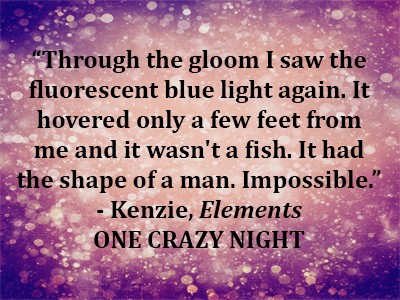
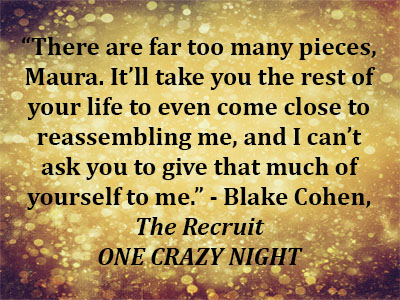
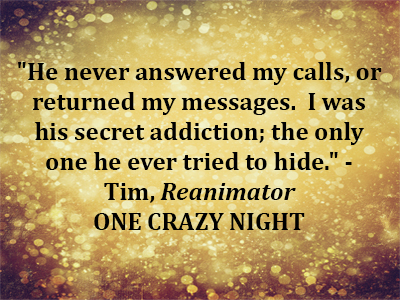
 RSS Feed
RSS Feed
